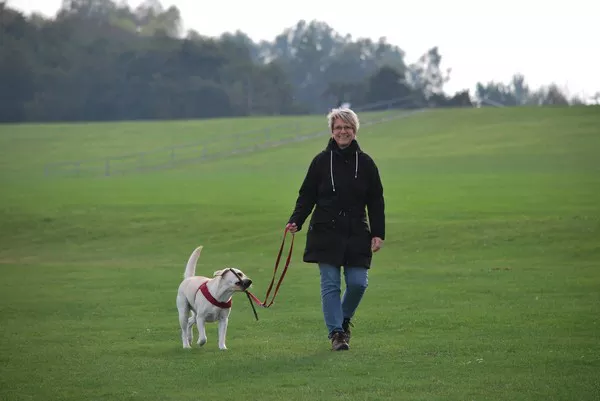Introduction to the German Shepherd Husky Mix:
The Gerberian Shepsky, a delightful hybrid of the German Shepherd and Siberian Husky breeds, captures the hearts of many with its unique blend of traits. Characterized by its dual-layer coat, expressive almond-shaped eyes, and medium size, this crossbreed embodies the best of both parent breeds. With a striking appearance and a loyal disposition, the Gerberian Shepsky has become increasingly popular among dog enthusiasts seeking a companion that combines intelligence, athleticism, and affection.
Physical Characteristics:
The German Shepherd Husky mix exhibits a captivating appearance, boasting a variety of coat colors including black, tan, white, and various combinations thereof. Their medium size typically ranges between 20 to 25 inches in height at the shoulder and weighs between 45 to 88 pounds, depending on factors such as genetics and diet. One of the most striking features of the Gerberian Shepsky is its expressive eyes, which can be blue, brown, or a mesmerizing combination of both.
Temperament Traits:
Known for their intelligence, independence, and unwavering loyalty, Gerberian Shepskies make exceptional companions for individuals and families alike. However, their intelligence can also lead to stubbornness if not properly trained and socialized from an early age. Early socialization is crucial to ensure they develop into well-adjusted dogs that interact positively with people and other animals. With the right guidance, Gerberian Shepskies thrive in environments where they are given tasks to stimulate their minds and opportunities to bond with their human counterparts.
Common Health Issues:
While Gerberian Shepskies are generally robust dogs, they may be prone to certain health issues inherited from their parent breeds. It is essential for prospective owners to be aware of these potential concerns and take proactive measures to maintain their pet‘s well-being.
Hip Dysplasia:
One common health issue in German Shepherds and Siberian Huskies is hip dysplasia, a condition where the hip joints become loose and unstable, leading to discomfort and impaired mobility. To mitigate the risk of hip dysplasia, owners should ensure their Gerberian Shepsky maintains a healthy weight through a balanced diet and receives regular exercise to strengthen their muscles and support joint health.
Eye Conditions:
Gerberian Shepskies may inherit various eye conditions from their parent breeds, including glaucoma, corneal dystrophy, juvenile cataracts, and progressive retinal atrophy. Regular veterinary check-ups are essential to monitor their eye health and detect any issues early on. Additionally, providing a nutritious diet rich in antioxidants and omega-3 fatty acids may help support eye health and reduce the risk of certain eye conditions.
Epilepsy:
Epilepsy, a neurological disorder characterized by recurring seizures, can affect Gerberian Shepskies as it does both German Shepherds and Siberian Huskies. While epilepsy cannot be cured, it can often be managed with medication and lifestyle adjustments to improve the dog’s quality of life. Owners should work closely with their veterinarian to develop a treatment plan tailored to their pet’s specific needs.
Cancer:
Unfortunately, like many large breeds, Gerberian Shepskies may be predisposed to certain types of cancer. While the exact causes of cancer in dogs are not fully understood, maintaining a healthy lifestyle with a nutritious diet, regular exercise, and routine veterinary care can help reduce the risk. Early detection through regular check-ups is crucial for prompt intervention and improved treatment outcomes.
Maintenance and Care:
Proper grooming and maintenance are essential to keep a Gerberian Shepsky healthy and happy.
Grooming and Shedding:
Due to their double-layered coat, Gerberian Shepskies shed moderately year-round and undergo heavier shedding during seasonal changes. Regular brushing with a slicker brush or deshedding tool can help remove loose hair and prevent mats from forming. Bathing should be done as needed, using a mild dog shampoo to avoid stripping the coat of its natural oils.
See Also:Why German Shepherds Put Their Paw on You?
Exercise and Training:
Gerberian Shepskies are highly energetic and require ample exercise to keep both their bodies and minds stimulated. Aim for at least 30 to 60 minutes of physical activity twice daily, which can include walks, runs, play sessions, and interactive games. Additionally, mental stimulation through obedience training, puzzle toys, and agility exercises is crucial to prevent boredom and destructive behavior.
Diet:
A well-balanced diet is essential to support the overall health and vitality of a Gerberian Shepsky. Choose a high-quality dog food formulated for large breeds, and ensure proper portion control to prevent obesity. Fresh water should be available at all times, and treats should be given in moderation to avoid excessive calorie intake.
Living Conditions:
Gerberian Shepskies thrive in environments where they have plenty of space to roam and explore. While they can adapt to apartment living with sufficient exercise and mental stimulation, they are best suited to homes with fenced yards where they can safely burn off their excess energy. Additionally, they enjoy being part of the family and should not be left alone for extended periods, as they may become bored and develop separation anxiety.
Price and Costs:
The cost of owning a Gerberian Shepsky can vary depending on factors such as breeder reputation, pedigree, and geographical location. On average, expect to pay between $500 to $1500 for a Gerberian Shepsky puppy from a reputable breeder. In addition to the initial purchase price, prospective owners should budget for ongoing expenses such as food, grooming supplies, veterinary care, training classes, and pet insurance.
In conclusion, the Gerberian Shepsky is a captivating crossbreed that combines the best traits of the German Shepherd and Siberian Husky breeds. With proper care, training, and attention to their unique health needs, Gerberian Shepskies can make wonderful companions for individuals and families seeking a loyal, intelligent, and active canine companion.
Related Topics:






















